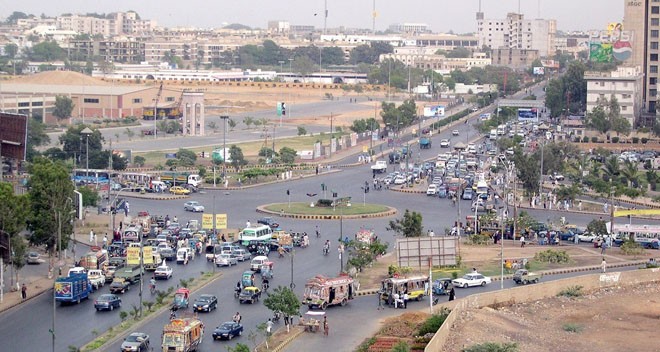

The Pakistan Urban Forum and First South Asian Cities Conference concluded in Karachi on January 12, 2014 with many useful presentations, lectures, roundtable discussions and plenaries that served to enhance knowledge of the participants.
In one session on the theme of demography and migrations, a very useful discourse took place. A senior official from the government, responsible for planning the census, deliberated about the preparedness of his department in conducting the census. He lamented that while the work on the ground had started and been suspended several times on political grounds, this was no excuse for delaying the most vital exercise in national stock-taking of people, places and assets.
Giving examples from neighbouring India, the official informed that Indian legislators have worked hard and have taken the political sting out of the census. The much controversial issues of provincial allocation of resources, ratios of development finance distribution, electoral affairs and similar matters have been frozen for a stipulated time frame. And the census is conducted purely as a technical exercise to support planning and development initiatives.
Numerous objections, fears and apprehensions regarding the census have been voiced by different political parties, community groups and vulnerable sections of the society in the recent past. The technocrats are strong supporters of this vital exercise and wish to keep it apolitical in nature to maintain its transparency and validity.
Certain vocal critics in Sindh have raised concerns about potential under-reporting of some locations due to logistics and accessibility reasons. Displacements due to the floods last year, internal migrations to Sindh from elsewhere due to different causes, horizontal movement of population and categorisation of housing typologies are also labelled as potential issues that shall have a bearing on any census outputs.
Communities in Balochistan that have suffered multiple predicaments do not feel confident that a headcount in the province would be accurate and open to listing their actual existence. The minority communities have also feared incorrect recordings of their numbers, given the environment of intolerance prevailing in many parts of the country.
Whereas every objection and concern is worth an impartial and objective investigation, a few fundamentals may be established to streamline the progress of this vital assignment.
By its very nature, a census is a technical exercise to be conducted in a neutral manner. It is initiated as the first step in diagnosing the social, demographic, economic and developmental status of the people and the contexts they inhabit. The information gathered as a result of the census has a bearing on allocating public resources, preparing cases for dealing with extraordinary underdevelopment, updating of population listings in different constituencies, outlining development priorities, correcting and streamlining choices of projects/programmes, extrapolating growth trends and many other attributes related to the communication ventures.
The census is also an exercise in assessing impact of past investments done in public health, education, social welfare and even physical infrastructure. The level of actual coverage and penetration of mass schemes such as immunisation works is studied through the tabulation and analysis of census results. In other words, the delivery mechanisms worked out by the various government departments, projects implementation units and donor funded arrangements are examined for their effectiveness. The technical appropriateness and veracity of this exercise is a pre-requisite for fresh planning, modification and implementation of such initiatives.
It is important to note that conducting the census can inform us about the scale, extent and nature of urbanisation that has increased exponentially during the past two decades. The definition of urban settlements and the parameters of urbanisation need to be re-visited to enable the policy-makers to recommend the right choices of resource allocations, development programmes and infrastructural preferences -- principally the energy consumption thresholds.
The understanding about trends in internal displacement, production links with settlements, locations experiencing disasters and consequent population shifts are also important matters that can be studied with precision based on census findings. The works of other institutions such as Nadra, Election Commission of Pakistan and Planning Commission will be greatly supported with the fresh body of information that shall be generated through a credible census exercise.
Fears and concerns around census in Pakistan are of various types. The political parties, at various levels of their working and existence, fear that the command and control of these exercises may impact their votebank. The ethnic groups -- and their overt and covert representatives -- are concerned about the manner in which the concentration of population will be recorded. Parties and groups dealing with specific regions and peoples wish to see the results directly responsive to their aspirations. Proportional population weightage in the provinces is another fear.
As the population factor is a vital variable in resource distribution through the NFC award, the census results and their validation will become an extremely contentious issue. The technocrats and management overseeing the are obviously under enormous watch and pressure while performing this routine duty.
The Constitution of Pakistan has laid down institutional arrangements to deliberate on these matters. Council of Common Interest may be convened to deliberate on this issue at the earliest possible instant. The government can come up with institutional arrangements to deal with the conduct of census in an objective manner.
At the procedural level, a complaint cell can be created in each taluka/tehsil/town to redress applications made by various stakeholders. An appropriate method can be devised to implement this approach effectively. Monitoring mechanisms can be devised with consensus to enable various parties and groups to oversee the process. And the input of research and development institutions can be taken in account for streamlining various problems including access, registration, and denial of information by various people as well as cross-verification.
It must be remembered that soundness of this information generation exercise shall help plan and develop our country on sound footing.